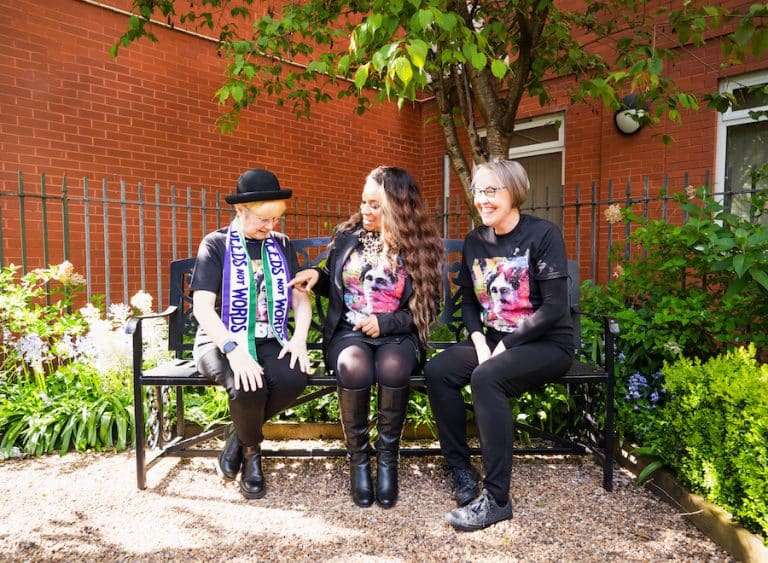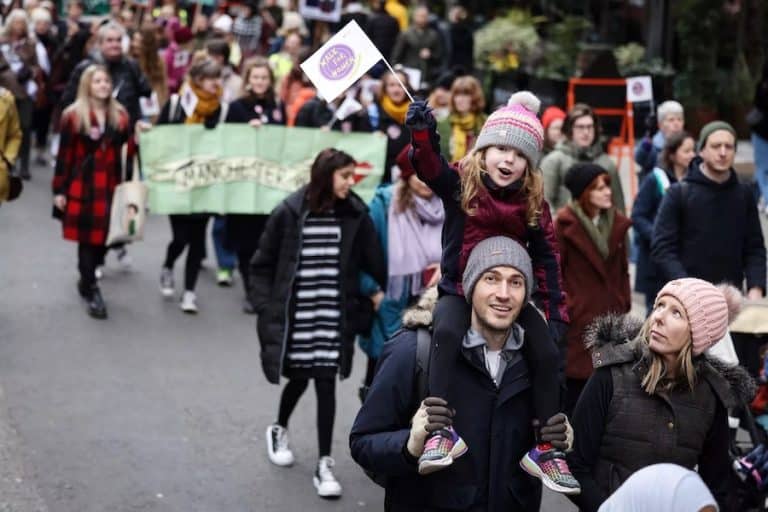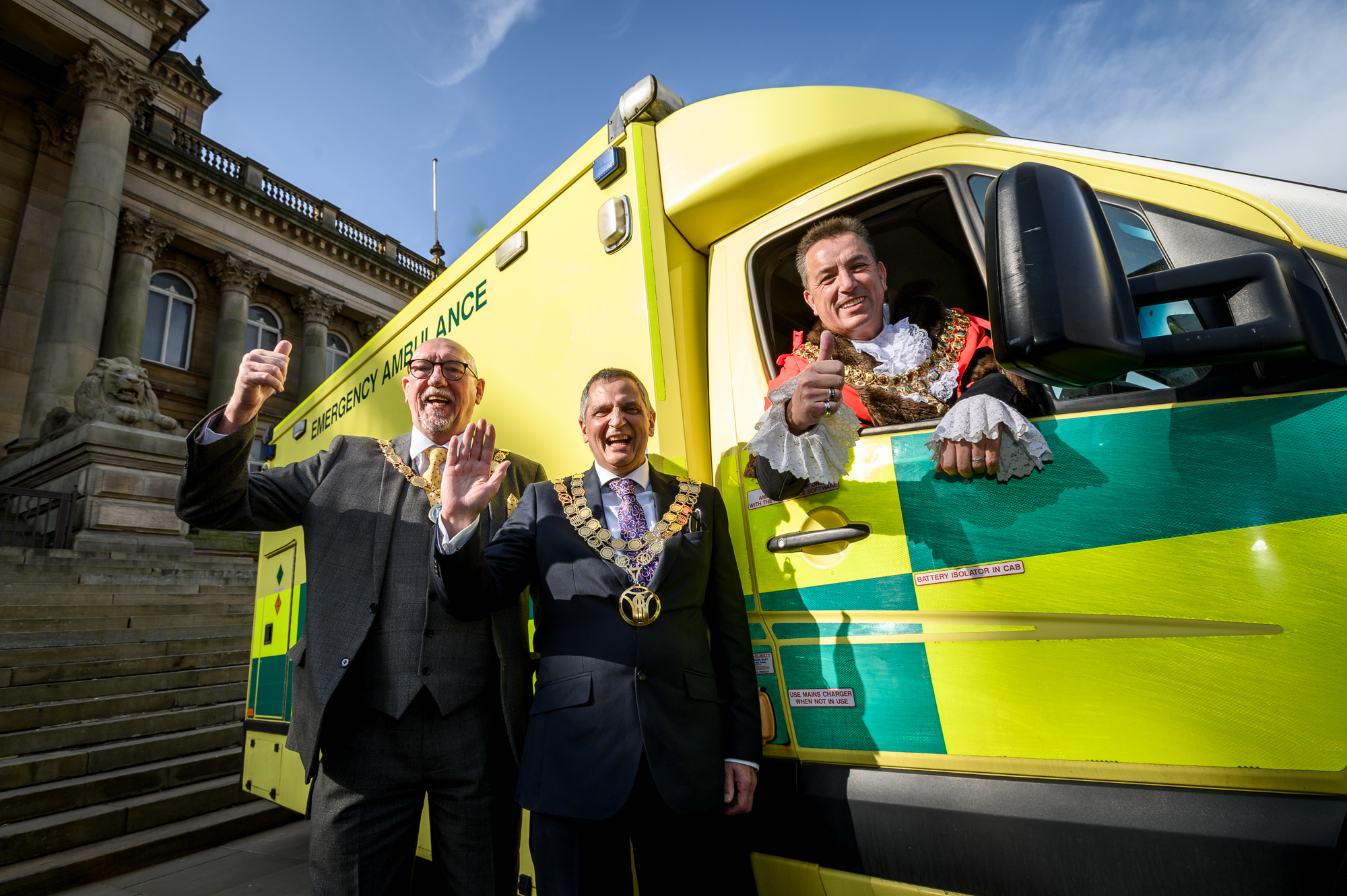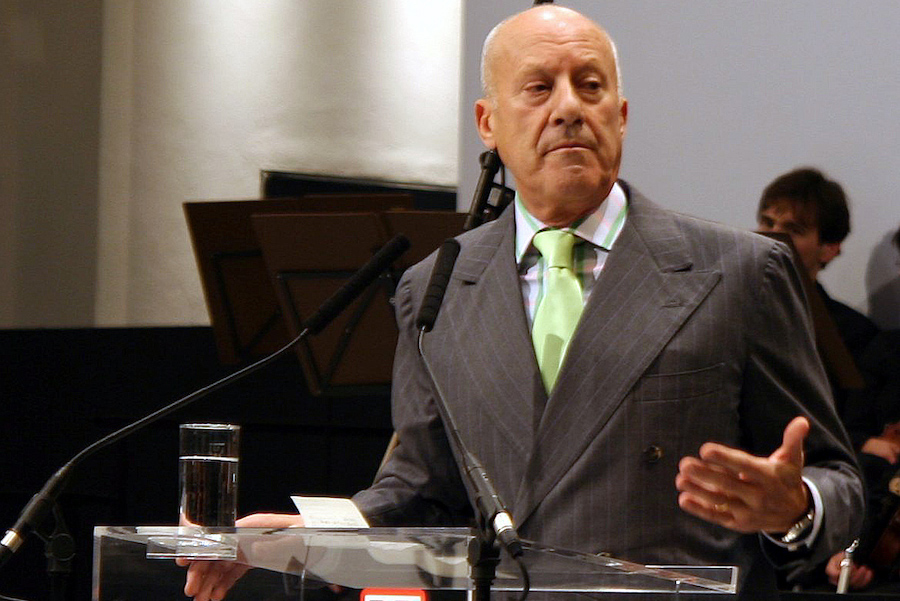How Dancing with Dementia became a weekly lifeline for 120 individuals
- Written by Thom Bamford
- Last updated 1 year ago
- Charity, City of Manchester, Community, Featured, People

In the quiet corners of Swinton, where history echoes through the halls of a refurbished ballroom, something extraordinary is happening.
Meet Lesley and the remarkable team behind “Dancing with Dementia,” an initiative that transcends the confines of age, memory, and the ordinary to create a haven of joy for those touched by dementia.
A World Indifferent to Dementia
Humble Beginnings to a Community Lifeline
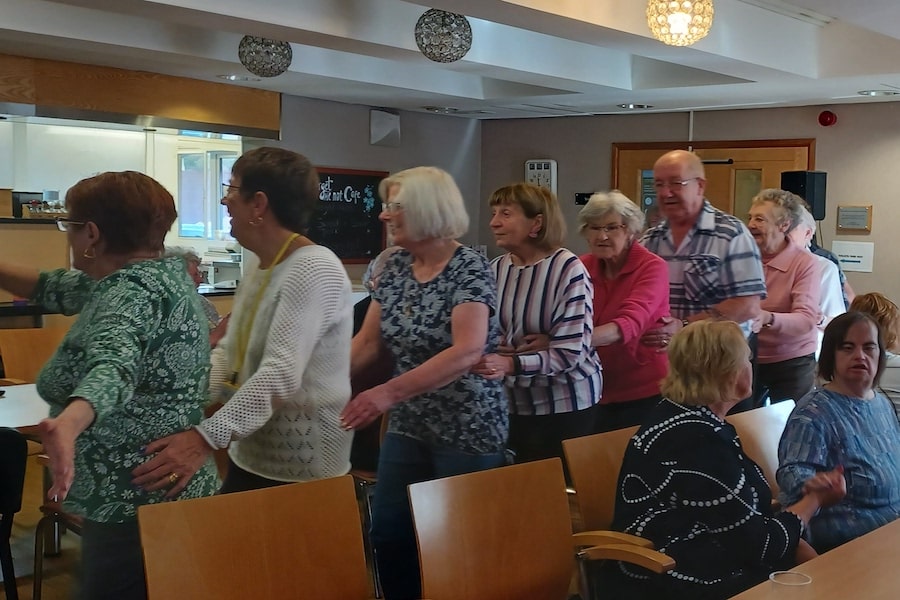
What started as a monthly dance for 24 brave souls soon blossomed into a movement, a lifeline for those navigating the complexities of dementia.
“Dancing with Dementia” is more than just a dance; it’s a celebration of life and a bridge between the past and present.
Lesley said: “My sister received a dementia diagnosis in 2014, and all we received was a piece of paper—a leaflet that offered minimal guidance, leaving us grappling with the enormity of the situation.
“Preceding this, she had battled lymphoma, and despite the challenging circumstances, we navigated a well-supported journey, knowing where to seek help and finding a robust support system.
“However, the dementia diagnosis felt like hitting a brick wall—an overwhelming, isolating experience with a grim prognosis and little assistance.
“Determined to make a difference, I delved into research and discussions, uncovering the surprising prevalence of dementia.
“It led me to a fascinating discovery from 1948 in America, where music, singing, and dancing were identified as therapeutic for those living with dementia.
“A conversation with a friend, experienced in ballroom dance and touched by her own mother’s dementia, sparked the idea of starting a monthly dance event.
“Initially, our monthly dances saw a modest turnout of 24 people, and after a few months, and we were scratching out heads thinking how can we get more people involved?
“Turning to professionals, we consulted the activity coordinators in care homes who suggested introducing live artists to complement the lively atmosphere of the refurbished ballroom.
“Fundraising events followed, building a portfolio of artists.
“The results were astounding—our last pre-pandemic meeting boasted a turnout of 180 people, which just goes to show how big a thing this is for people touched by this awful disease.”
The Pandemic Takes Hold
The onset of the pandemic forced them to rethink their approach.
Unable to host large gatherings, the group came together and initiated a meal project, delivering food to individuals in need.
This small act became a lifeline for those sheltering from the world, providing a moment of connection and support in the face of isolation.
Of course, most people with dementia were deemed vulnerable, so had to shield.
Lesley continued: “Caring for someone with dementia amid a pandemic-induced isolation was an ordeal in itself.
“The absence of external support and the strict adherence to safety measures by my brother-in-law made the situation even more challenging.
“Witnessing the toll it took on both of them, I decided to take action. That’s when the meal project was born—an initiative to ensure that at least someone was checking in regularly, offering a lifeline through a warm meal and a friendly face.
“Beyond the meals, we forged connections through a unique club, where groups of ten individuals would regularly call and support each other, fostering a sense of camaraderie.
“To enhance their experience, we distributed MP3 players, CDs, and even the classic record players, delivering the joy of music to their doorsteps. As the pandemic waned, we sought to revive the support system that had once meant so much to my sister.
“Humphrey Booth Resource Centre, a place my sister frequented for singing with dementia, became the cornerstone of our efforts.
“The camaraderie and understanding amongst the attendees provided unparalleled support, and it was something I couldn’t bear to let go of when the original coordinator, June, decided not to resume post-pandemic.
“With the blessing of the trustees, we took on the responsibility, expanding from one monthly event to a weekly Wednesday morning gathering.”
Fuelled by the need for more space and resources, they organised fundraising events and applied for grants.
Wednesday sessions consistently draw 75 to 80 attendees, and some of the events draw as many as 120.
The importance of these events goes beyond mere social gatherings; they offer a sense of security and joy, akin to a Friday night out with friends, but in the comforting light of day
Recognising the evolving desires of our community, we consulted with the participants, leading to the introduction of day trips and meals out.
These excursions, be it to Blackpool, Skipton Market, or the local chippy on Salford Precinct, have become cherished opportunities for reminiscence, laughter, and community bonding.
The Challenges of Caring for Someone With Dementia
Navigating the challenges of caring for someone with dementia is an intense, around-the-clock responsibility.
It requires a level of dedication akin to a professional job, yet often undertaken without formal training.
Carers, driven purely by love and gut instinct, find solace and understanding in connecting with others facing similar journeys.
Lesley continued: “Within our community at Dancing With Dementia, every trustee and volunteer has traversed their unique dementia path.
“This shared experience ensures that newcomers are met with empathy and a deep understanding of the challenges they face.
“Dementia manifests differently for each individual, and the community provides a safe space for diverse stories, such as my sister’s belief, at 86, that she was pregnant and the subsequent support offered to ease her anxiety.
“Recognising the importance of professional training for carers, we collaborate with Age UK to provide essential programs.
“These initiatives cover various aspects, from navigating conversations to understanding the nuances of communication without unintentionally finishing sentences for those with dementia.
“Age UK generously offers this training free of charge, equipping carers with the tools they need to provide the best support.
“A testament to this is the overwhelming response to our call for teddy bears to comfort dementia patients in A&E units, receiving nearly 300 teddies.
“We had so many we didn’t know what do with them!
The Grand Palais in Swinton
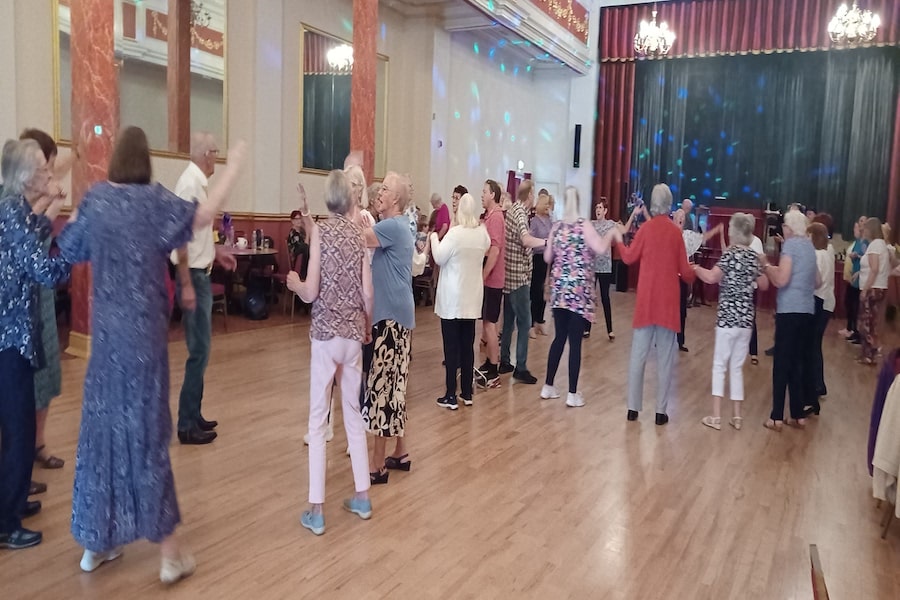
Lesley continued: “Visitors often share heartwarming tales, like that of a woman whose first date with her husband unfolded in the very same cinema (now Grand Palais Ballroom) back in 1948.
“We’re trying to get people to share their memories or jog something within them with these events.”
The Grand Palais Ballroom has served as a cultural hub for the community, witnessing the debut gigs of emerging artists in the ’60s and ’70s.
“Over the years, it has accumulated not just historical significance but a treasure trove of memories. These anecdotes become catalysts for conversations in our community, crucial for stimulating the minds of those living with dementia and fostering new positive memories for carers.
“The iconic building, with its connections to the past, now plays a pivotal role in creating present-day joy.”
Looking ahead, their plans involve expanding to more venues to meet the growing demand for our services.
While the logistics and financing pose challenges, the increasing openness to supporting people with dementia is encouraging.
The surge in awareness, particularly due to celebrities acknowledging their dementia diagnoses, bodes well for their mission.
Our efforts aim not only to provide a haven for those already diagnosed but also to proactively combat the effects of isolation and loneliness.
To finish, Lesley said: “The journey is deeply personal for us, driven by a collective commitment to channel grief into positive energy.
“As volunteers, every donation we receive goes back into the cause, benefitting care homes, hospital wards, and individuals still living at home.
“We’re dedicated to this cause, and the satisfaction derived from making a positive impact fuels our resolve to continue this meaningful journey.”
In essence, Dancing With Dementia is not just a community—it’s a showcase of the enduring power of love, shared memories, and the resilience of the human spirit in the face of challenges.
You can check out their Facebook page by clicking here
- This article was last updated 1 year ago.
- It was first published on 14 November 2023 and is subject to be updated from time to time. Please refresh or return to see the latest version.
Did we miss something? Let us know: [email protected]
Want to be the first to receive all the latest news stories, what’s on and events from the heart of Manchester? Sign up here.
Manchester is a successful city, but many people suffer. I Love Manchester helps raise awareness and funds to help improve the lives and prospects of people across Greater Manchester – and we can’t do it without your help. So please support us with what you can so we can continue to spread the love. Thank you in advance!
An email you’ll love. Subscribe to our newsletter to get the latest news stories delivered direct to your inbox.
Got a story worth sharing?
What’s the story? We are all ears when it comes to positive news and inspiring stories. You can send story ideas to [email protected]
While we can’t guarantee to publish everything, we will always consider any enquiry or idea that promotes:
- Independent new openings
- Human interest
- Not-for-profit organisations
- Community Interest Companies (CiCs) and projects
- Charities and charitable initiatives
- Affordability and offers saving people over 20%
For anything else, don’t hesitate to get in touch with us about advertorials (from £350+VAT) and advertising opportunities: [email protected]

The world-renowned Mancunian architect behind Old Trafford’s future
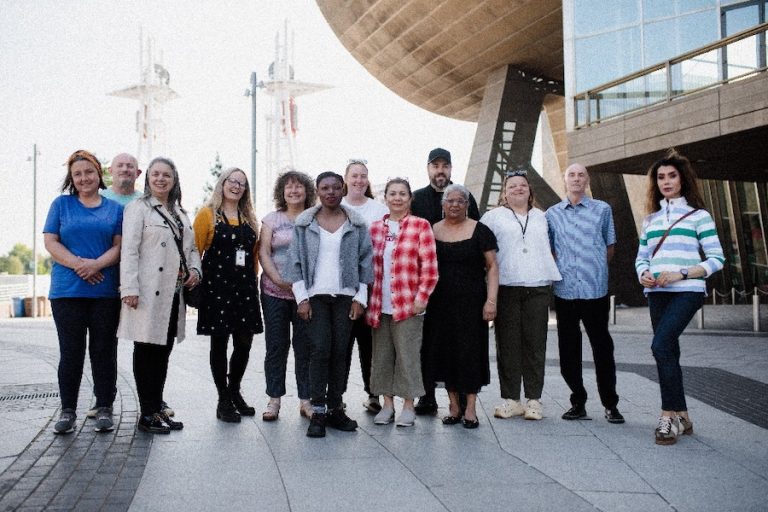
LOWRY wins £200k for community arts projects to celebrate 25th Birthday

Manchester United reveal plans for new 100,000-seater stadium – set to be UK’s biggest

Review: RNCM Session Orchestra with Tim Burgess and Helen O’Hara is ‘a joyful evening of classics’
